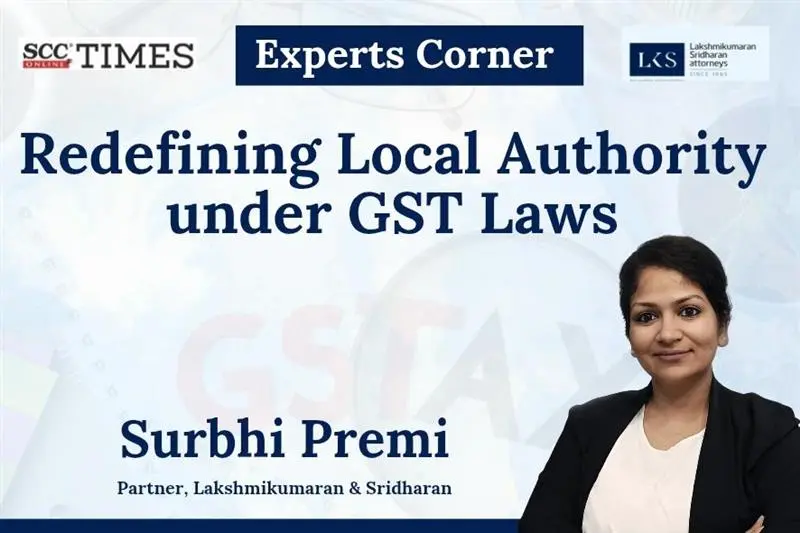The Finance Bill, 2025 has proposed to provide for definitions of the terms “local fund” and “municipal fund” used in the definition of “local authority”. The memorandum to the Finance Bill calls this amendment to be clarificatory in nature without assigning any reasons. “Local authority” under goods and services tax (GST) laws enjoys special status in view of concessional rates and exemptions to various supplies made to/by local authority. Moreover, mostly all supplies by local authority, barring a few, require GST payment under reverse charge mechanism (RCM). Therefore, it becomes imperative to examine the scope of proposed amendment and its applicability as being prospective or retrospective in nature.
Pre-amendment definition of local authority inter alia includes a Municipal Committee, a Zila Parishad, a District Board, and any other authority legally entitled to, or entrusted by the Central Government or any State Government with the control or management of a municipal or local fund. However, the terms “municipal or local fund” were not defined. Now the Finance Bill, 2025 has proposed to add explanation to define the terms “local fund” and “municipal fund” as any fund under the control or management of an authority of a local self-government established for discharging civic functions in relation to a Panchayat area or metropolitan area or municipal area, as the case may be and vested by law with the powers to levy, collect and appropriate any tax, duty, toll, cess or fee, by whatever name called.
On a perusal of the definitions of the local fund or municipal fund, it seems that mostly all the expressions used to explain these funds have been laid down as distinctive attributes of the local authority by the Supreme Court in Union of India v. R.C. Jain1. In this case, the Supreme Court was analysing the definition of the local authority as given in the General Clauses Act, 1897 which is very similar to the definition of the local authority under the GST laws prior to the amendment. Basis this one may contend that the explanation is clarification in nature which is reiterating the principles laid down by the Supreme Court.
The Supreme Court in the aforesaid case held that Delhi Development Authority (DDA) is a local authority. However, the Circular issued post 55th GST Council Meeting clarifies that local authority should be similar to the elected self-governing body such as Municipal Committee and goes on to clarify that DDA cannot be treated as local authority under GST law. It is a settled legal principle that circulars contrary to the declaration of law by the courts are invalid in the eye of the law. However, one must carefully analyse the proposed explanation providing for an authority of a “local self-government”.
The term “local self-government” is not defined in the GST laws. However, the foundation of the present local self-government in India can be traced to 73rd and 74th Amendments to the Constitution which added Part IX (Panchayats) and Part IX-A (Municipalities) to the Constitution with a view to provide for setting up democratic institutions at the grassroot level and enable them to function as units of self-government. Self-governing units are those who are governed by the said units and for whose benefit they are going to operate, will have either a direct or an elective indirect representation in them.
It is pertinent to note that Entry 5 in List II of Schedule VII to the Constitution empowers the State Legislature to legislate for local Government for the purpose of local self-government or village administration. These local bodies are subordinate branches of governmental activity, and they are democratic institutions managed by the representatives of the people. These local bodies represent the units of local self-government where people of a local area govern themselves through their elected representatives in respect of a large number of matters. Moreover, these bodies are basically independent bodies with very little or minimal Government control and that too in the limited field. Therefore, one must see whether the local bodies are intended to carry on self-government.
The determination of local authorities and authorities of local self-government had always been a highly contentious area. Therefore, it is paramount that in the light of explanation added to the definition of local authority bringing in the concept of local self-government, one must revisit the positions relating to rate, exemptions and RCM payments concerning transactions with local authorities.
*Partner, Lakshmikumaran & Sridharan Attorneys.






